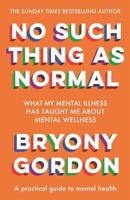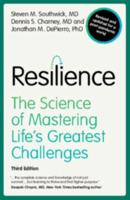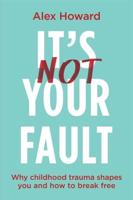Publisher's Synopsis
Don't you hate the sound of the alarm clock? It might be the single most hated sound on the Earth. It interrupts the most crucial thing we do: our sleep. If you need an alarm to wake you up in the morning, then you're not sleeping enough. Sadly, most of us don't. There is a lot of stigma around sleeping in the modern world, which has created a wellspring of idioms such as "you'll sleep when you're dead" and "time is money, and money never sleeps," as well as stereotypes like "teenagers are lazy" to "older people don't need much sleep." All of these are all nonsense, and we'll talk more about why-why we sleep, what's going on while we sleep, what happens when we're sleep-deprived, and how we can change our sleeping habits. Sleep isn't a luxury, but a non-negotiable biological necessity.
This book covers the following topics:
- Know sleep
- Benefits of sleep
- The importance of having adequate sleep
- How lack of sleep affects your emotional health
- Problems of not getting enough sleep and correctly
- Consequences of not getting enough sleep
- Stress can cause many sleep issues
- How to create the perfect room to sleep
- Choice of bed and pillow
- The best bedtime routine do's and don'ts
- Choosing the right foods for sleep
- 5 exercises for better sleep
- Sleep scripts
- Meditation for sleeping
- Exploring sleep cures
- Tips to improve sleep
- Recommended lifestyle for improved sleep and rested mind
- Create a daily routine that helps with sleeping
- How to maintain a regular sleep schedule
...And much more
Sleeping is a healthy and essential part of our lives. It takes up about 30% of our lives, which means that if you live to be 90 years old, you'll spend 32 of those years sleeping! Yet, it's not clear why we need to sleep nor what's going on in our brain while we do. There are plenty of theories, but nobody knows for sure.
If you think about it, it's undoubtedly quite odd. While you sleep, you're not doing anything, at least so it seems. Your body is paralyzed, you're not conscious, and you're vulnerable. Yet, there must be something behind it all that's worth that risk.
Pondering the nature of sleep has been going on since the dawn of the human species. However, the general attitude towards sleeping changed throughout history. From a natural cure, sleep somehow unjustly turned into a waste of time for many people. Ever since Edison invented the lightbulb, people have started staying up later. Where before they went to bed with the setting of the sun, now they stay awake long into the night so they can do more. Sadly, the importance of sleep has been underestimated for too long. In the 20th Century, people started treating sleep almost as if it were an illness. That's change slightly in modern days. We now tolerate our need for sleep, although not too enthusiastically. We still recognize it's vital, but we don't know why exactly why it is. Unfortunately, our knowledge of sleep is still relatively limited and based on intuition, but, on the plus side, there's much more we can learn about it.
So, Let's get started!









